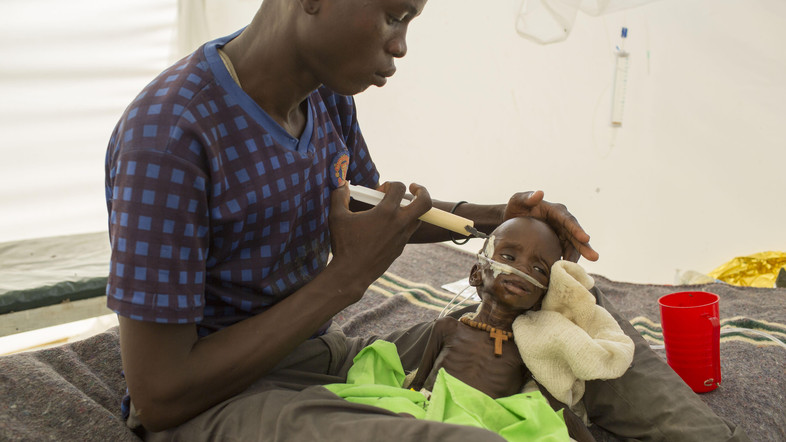The United Nations humanitarian coordinator, Stephen O’Brien told the Security Council that the world is facing the biggest humanitarian crisis since 1945 when the U.N. was founded. He also made a request of $4.4 billion to fight against hunger in four specific countries: South Sudan, Yemen, Somalia, and Nigeria.
He also said that this crisis can be preventable, but all the countries need to work together and prevent the further development of the current crisis, mostly in the African region and the Middle East. “Without collective and coordinated global efforts, people will simply starve to death,” O’Brien said to the Council, according to NBC news.

The magnitude of the crisis
According to O’Brien, 3 million people in Yemen don’t know if they will have a meal or from where will it come. On the other hand, in Somalia, 110 people died of hunger in only two days, according to the prime minister, and in South Sudan, two out of every 10,000 people die of hunger every day, according to NPR.
O’Brien visited all those countries to personally verify the famine situation and the amount of money that is needed to start changing the reality of this people and prevent future hunger crisis and deaths.

As in similar situations around the world, children are the most affected. If the U.N. doesn’t make a big money effort to stop this situation, children of many countries won’t be able to go to school, which represents another big problem of African countries: education.
According to the U.N.’s Food and Agriculture Organization (FAO), 37 countries need foreign help with the food crisis. 28 of these countries are in Africa because of the drought effects on the crops, caused by El Niño last year and all the conflicts causing thousands of displaced people all over the continent.
The World Food Programme recently published that 3 million people require humanitarian assistance in Somalia, while another 3.3 million need support. This U.N.’s program has been working in food assistance and nutrition support for all the Somalian people since 2016.
The World Food Program estimates that 363,000 children aged under 5 are acutely malnourished, including 71,000 who are severely malnourished and face a high risk of disease and death.
During the last 30 years, Africa has been suffering at least six food crises, most of them caused by weather situations like El Niño.
In February, the new U.N. Secretary General, Antonio Guterres, said that a strong and urgent action is needed in Yemen, where 18.8 million people are in need of humanitarian assistance.
Source: NPR
